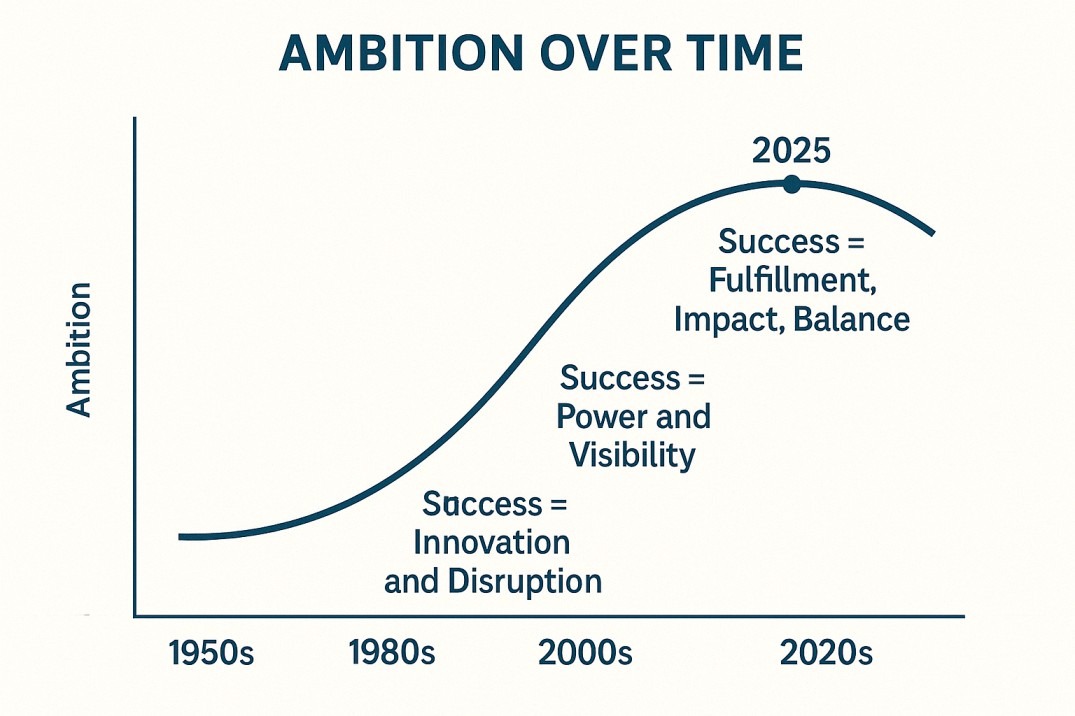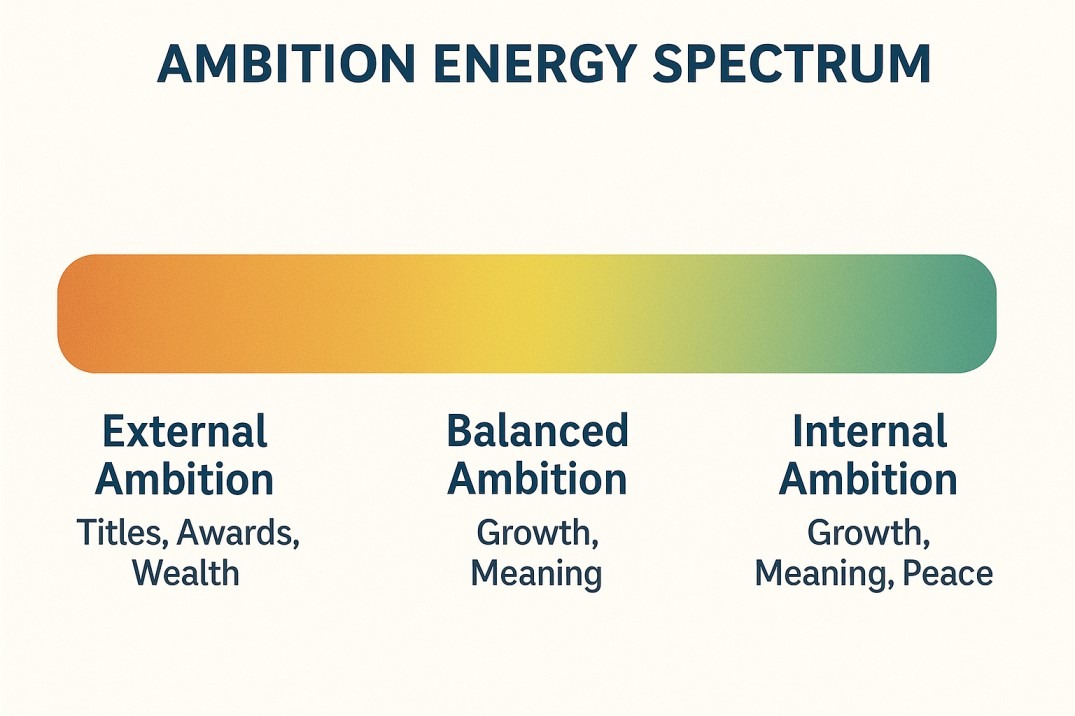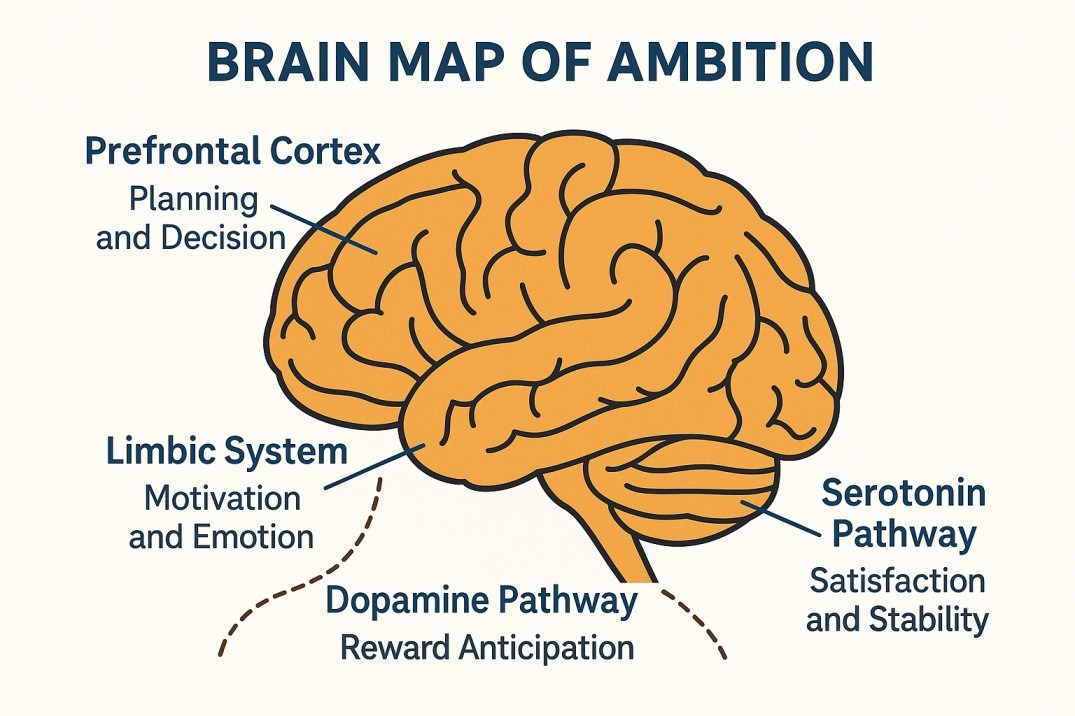Ambitions in today’s world isn’t just about wealth or fame—it’s the personal pursuit of growth, purpose, and contribution. Asking what does ambition mean reveals shifting definitions shaped by culture, technology, and self-awareness. From quiet perseverance to bold innovation, ambition has evolved into a complex reflection of human values, aspirations, and adaptability.
Ambition has long been the invisible engine driving human progress. Yet in the 21st century, it has taken on a new and deeply personal dimension. When we ask what does ambition mean, we’re no longer speaking about the relentless pursuit of money or status; we’re addressing something far more intricate—the blend of curiosity, resilience, and self-definition that pushes people to reach beyond comfort.
In a hyper-connected, digitally transparent world, ambition has become both a mirror and a compass. It reveals who we are and directs who we wish to become. But the definition of success—once linear and material—has fractured into multiple interpretations. The startup founder, the artist, the teacher, and the humanitarian may all be ambitious, but their destinations look entirely different.
Ambition in today’s world means more than success or power; it represents purpose, growth, and alignment. Modern ambition balances personal fulfillment with social impact, blending drive with self-awareness. It is not about endless pursuit but about meaningful direction that transforms individual goals into collective progress.
The Evolution of Ambition
Centuries ago, ambitions was often synonymous with hunger for power or recognition. Ancient philosophers even warned against it, seeing it as vanity disguised as virtue. But today, when we wonder what does ambition mean, it’s impossible to separate it from purpose. Modern ambitions intertwines personal values with societal impact, blending drive with empathy.
Ambition now moves quietly in some people and roars in others. For some, it means launching a company. For others, it means raising a family, mastering a craft, or healing a community. It is no longer tied to hierarchy but to alignment—the coherence between inner conviction and external action.

The Modern Shape of Drive
The question what does ambition mean has shifted from “What do I want?” to “Why do I want it?” This subtle shift defines the modern era. Technology gives us instant visibility of other people’s lives, goals, and triumphs—forcing an uncomfortable comparison that often distorts our sense of personal ambition.
Many young professionals now measure ambitions through meaning rather than milestones. The quiet determination to do work that matters has replaced the loud competitiveness of the past. Studies show that 64% of employees under 35 prioritize purpose over promotion, and companies with purpose-driven cultures report retention rates 40% higher than those without one.
That doesn’t make ambitions weaker; it makes it wiser. It’s not the abandonment of drive—it’s its recalibration.
The Duality of Modern Ambition
There’s a paradox hidden inside the modern drive to succeed. Ambition today exists in tension between external validation and internal peace. When we ask what does ambition mean, we often uncover both the longing for recognition and the search for serenity.
The world celebrates hustle but increasingly values mindfulness. It rewards boldness yet warns against burnout. We’re encouraged to dream big but also to rest well. That duality can make ambitions feel fragmented—pulling us in two directions at once.
Yet this contradiction might be ambition’s greatest evolution: the ability to desire progress without losing humanity. True ambition now involves not just reaching high, but remaining whole.

Cultural Influence on Ambitions
Culture still defines the texture of ambition. In Western societies, ambition often celebrates individuality—the idea of breaking through barriers and leading change. In Eastern philosophies, ambition aligns more with harmony, collective progress, and mastery of the self.
The global question what does ambition mean has therefore become beautifully plural. In a hybrid world of remote collaboration and multicultural teams, ambition is no longer a single voice—it’s a chorus of aspirations shaped by background, upbringing, and worldview.
Even within the same organization, ambition can look radically different: one person may chase visibility, another may chase legacy. The true art lies in integrating both without judgment.
The Psychology of Ambitions
From a psychological lens, ambition is both a cognitive and emotional construct. It stems from self-efficacy—the belief in one’s ability to influence outcomes. But it’s also regulated by emotional intelligence, the awareness of limits, empathy, and timing.
When we ask what does ambition mean, neuroscience offers an answer: it’s a blend of dopamine-driven pursuit and serotonin-driven satisfaction. It’s not just about the chase—it’s about the anticipation, the reflection, and the integration of lessons learned through effort.
Interestingly, studies from the University of Pennsylvania found that people with “calibrated ambition”—those who balance high goals with realistic expectations—report 27% higher life satisfaction than those driven by pure competitiveness.
That insight changes how we see success. Ambition isn’t about endless acceleration. It’s about pace, rhythm, and alignment.

Ambitions and Technology
Technology has reshaped ambition in both thrilling and troubling ways. Algorithms amplify comparisons; social media turns achievement into performance. The digital age has made ambition visible—but sometimes hollow.
When millions display success daily, ambition becomes a filtered reality. Asking what does ambition mean in this context forces us to reclaim authenticity. Digital ambition should not mean constant exposure; it should mean digital purpose—using platforms to share, build, and uplift rather than compete endlessly.
Paradoxically, the same technologies that trigger envy also democratize opportunity. Remote learning, online entrepreneurship, and global connectivity make ambition accessible to anyone with Wi-Fi and willpower. The gap between dream and execution has never been narrower.
Modern ambition also carries a moral weight. The question what does ambition mean cannot be separated from “At what cost?” In business, politics, and innovation, ambitions often collides with ethics. The drive to achieve must coexist with the responsibility to care.
This ethical evolution of ambition is visible in how people now value sustainability, diversity, and inclusion. Ambition has matured from “how much can I gain?” to “how much can I give while growing?” The leaders of tomorrow are those who build systems that scale compassion alongside performance.
Final Words
Success once meant outcomes. Today it means alignment. When people ask what does ambition mean, they’re asking how to find a version of success that feels sustainable.
It’s no longer enough to accumulate; we must integrate. The most ambitious person is not the one who does the most, but the one who lives most intentionally. Modern success is measured by coherence—when what you pursue outwardly reflects what you believe inwardly.
This alignment is the quiet revolution of ambitions. It turns external goals into inner harmony and transforms ambition from a race into a rhythm.
Andrea Balint is a writer and researcher focused on human behavior, workplace psychology, and personal growth. Through her work at CareersMomentum, she explores how mindset, leadership, and emotional intelligence shape modern careers. With a background in communication and HR development, she transforms complex ideas into practical insights that help readers build clarity, confidence, and professional purpose.
